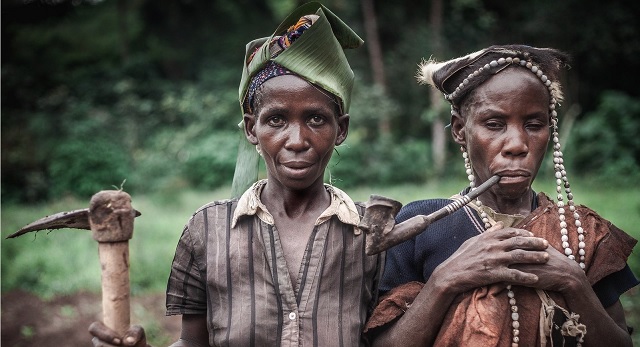
Kabale, Uganda | THE INDEPENDENT | Political leaders in Kigezi region have implored the government to resettle the Batwa following their eviction from national parks in the 1990’s. The leaders were speaking during the release of a study by Mbarara University of Science and Technology-MUST, dubbed “Understanding the Marginalized Batwa people of South Western Uganda,” at Kanungu social center.
The lead researcher, Dr. Viola Nilah Nyakato said the study was aimed at understanding the lives of the Batwa and ways of improving their livelihoods.
Speaking at the meeting, Kabale LC V chairperson Patrick Besigye Keihwa, who also doubled as steering committee chairperson for the research noted that ever since the government evicted the Batwa from Bwindi, Mgahinga and Echuya national forests, it has done nothing to resettle them.
He called upon the government to compensate the Batwa and resettle them in areas near the forest since it is their lifestyle.
The Kisoro district LC V chairperson Abel Bizimana supported the proposal. He accused the government of joining forces with the indigenous population to make the lives of the Batwa difficult by denying them the basic necessities of life.
On his part, the Kanungu district LC vice-chairperson Gard Byomuhangi said the government ought to provide land to the Batwa, incorporate them into the Operation Wealth Creation program and other government programs to improve their lives.
He however noted the need to work on the change of the mindset of the Batwa if any progress is to be made.
Gard Shemajere, the Executive Director Batwa Development Organization says that as Batwa, they want representation in the local leadership structure. They also want to be resettled near forests and get fertile land for agriculture.
Findings of the study show that 80% of the Batwa do not own land and live as squatters on pieces of land provided by non-governmental organisations without any legal documentation.
The Batwa, also known as Twa people are pygmies. They are scattered in Kanungu, Kisoro, Rubanda and Kabale districts. They were the original inhabitants of the Bwindi forest where they are believed to have stayed for more than 300 years.
****
URN
 The Independent Uganda: You get the Truth we Pay the Price
The Independent Uganda: You get the Truth we Pay the Price



